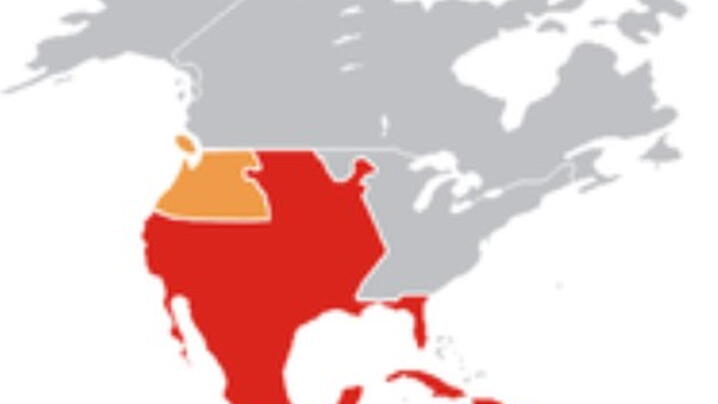
by Rita Soler Ossolinski, Director, State and Affiliate Relations, ICMA
October 15 will mark the close of the 49th annual commemoration of Hispanic Heritage in the United States. The week-long designation originated in 1968, and it was expanded to a full month in 1988, from September 15 to October 15. The timing coincides with the anniversaries of independence from Spain for eight Latin American countries between September 15 and September 21, 1821.
Why designate a full week, and now a full month, to highlight the Hispanic culture in the United States? Our nation is one of immigrants, and we would be hard-pressed to name a nation not represented in today’s U.S. population. Waves of immigrants from all corners of the globe have populated our country through the decades.
The key word is heritage, and a quick glance at an 18th century map of North America underscores the expansive Spanish settlement and presence on the continent in its early national evolution. The Spanish cultural influence is embedded in U.S. geography, covering a wide swath from Northern California, through the southwest and Texas, much of the Midwest, and then southeast to the southern tip of Florida. The names of eight states are derived from Spanish origin, not to mention countless communities, mountain ranges, and rivers.
Population Growth
Census data since 1980 shows a sustained significant growth of Hispanics, another affirmation of the reason to celebrate Hispanic Heritage in the United States.
YEAR | Total Hispanic Population | Total U.S. Population | % of U.S. Population | % Increase |
1980 | 14.6 million | 226.7 million | 6.5% | - |
1990 | 22.4 million | 246.7 million | 9% | 54% |
2000 | 35.3 million | 281.4 million | 12.5% | 57.9% |
2010 | 50.5 million | 308.7 million | 16% | 43% |
Hispanic vs. Latino
Textbook definitions do little to persuade individuals who identify with one over the other of these two interchanging identifiers. I find the U.S. Census Bureau definition of Hispanic or Latino origin, as used in the 2010 Census, to be the broadest: “Hispanic or Latino” refers to a person of Cuban, Mexican, Puerto Rican, South or Central American, or other Spanish culture or origin regardless of race." Those of us who trace our origins to Latin America prefer Latino/Latina. Those of us who have ancestral roots in Spain may gravitate toward Hispanic. Either can be judged to be more or less inclusive; I recommend embracing both. Local governments across the country have consistently set aside this time to celebrate Hispanic arts and culture and to honor the many contributions of Hispanic Americans. Hispanic Heritage Month, 2017.
Personal Journey
My personal Hispanic/Latina journey has been rich but is probably not unique among the varied experiences of my Hispanic/Latin American cohorts nationwide. We come from more than 20 countries and territories in Central and South America, the Caribbean, and Spain. We trace our ethnicity to the indigenous people of Latin America, the African people who were brought to labor in our countries of origin, and the western Europeans who colonized our lands.
When people look at me wide-eyed and say “But you don’t look Puerto Rican!”, I smile and reply, “We come in all sizes, shapes, and colors.” My Puerto Rican born father and mother traced their roots to the Spanish regions of Cataluña and Andalusia respectively. My father, a 1943 graduate of West Point, served as an officer in two wars and gave me the rich experience of living in all regions of the United States, Puerto Rico, Spain, and Bolivia.
My own career in public service includes work with Hispanic nonprofit organizations in Washington, D.C., work as a department head with the D.C. Government Office of Latino Affairs where I focused on equitable service delivery to Latino residents, and of course, ICMA. My first ICMA assignment was to staff the Hispanic Network, which had begun its formation in the late 1970s, and which ICMA embraced as a group to be fully supported in 1991. I was privileged to work with Alex Briseño and Dave Mora, both of whom will receive ICMA’s Distinguished Service Award at the 2017 ICMA Annual Conference. They served as past president and president of the Hispanic Network in the early 1990s and guided the organization in its formative years. The Hispanic Network launched its own nonprofit professional association in 2004, and it continues to be a key ICMA affiliate with more than 600 members nationwide. Henry Cisneros will be the featured speaker at the affiliate's annual dinner at the 2017 ICMA conference.
I am extremely proud of my Hispanic, Latina, American heritage. I look forward to supporting ICMA’s continued commitment to equity and inclusiveness in the local government management profession and to ensure that local governments look like the communities they serve. I also look forward to the 50th anniversary of Hispanic Heritage month in 2018 and being part of the ongoing legacy and rich contributions of Hispanics in the United States for many years to come.
New, Reduced Membership Dues
A new, reduced dues rate is available for CAOs/ACAOs, along with additional discounts for those in smaller communities, has been implemented. Learn more and be sure to join or renew today!
